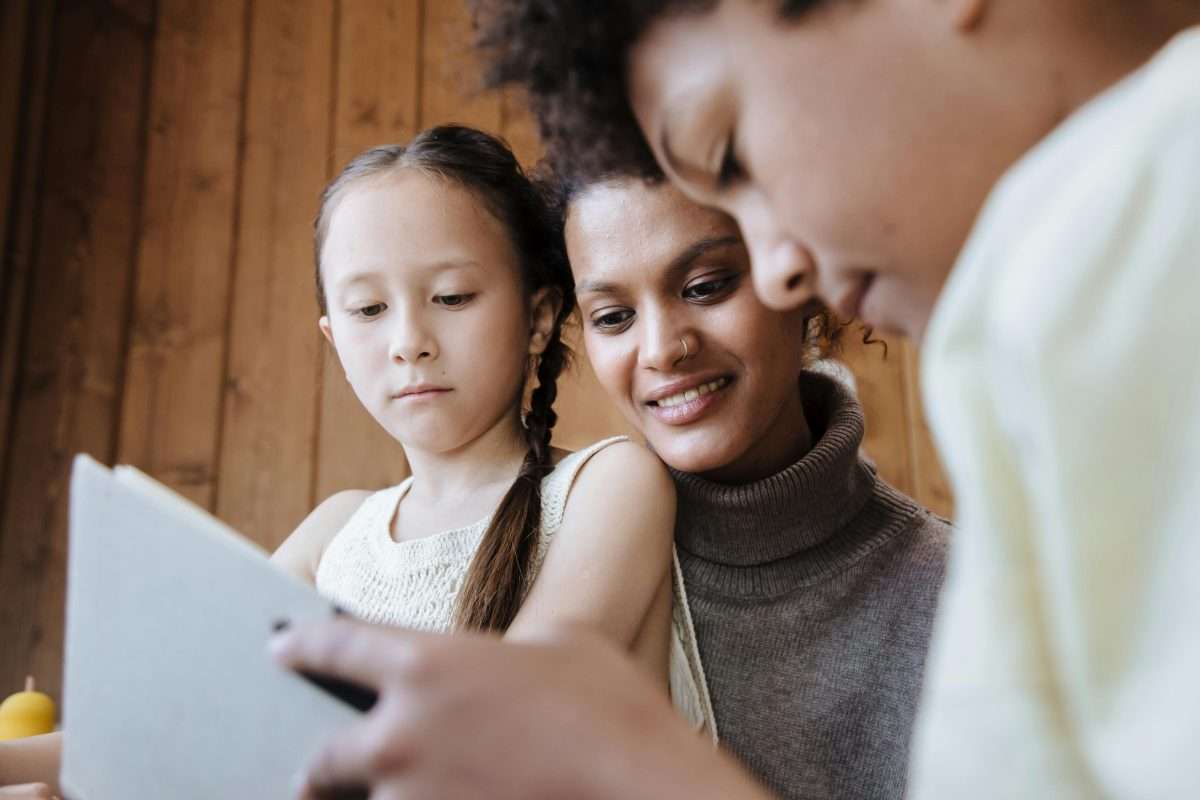The leap from raising young children to navigating the unpredictable terrain of the tween and teen years can be both bittersweet and jarring for many parents.
“There’s a lot of grief that parents go through when we transition from little kids into tweens and teens, and they start to individuate,” says Kristen Manieri, mindfulness coach. “And that’s a nice way of saying they start to push us away,” she told Lianne Castelino during an interview for Where Parents Talk. “You don’t know the last time you’ll hold their hand or that they’ll crawl into bed with you. Those moments just… end.”
“You don’t know the last time you’ll hold their hand or that they’ll crawl into bed with you. Those moments just… end.”
Manieri is also a habits coach, author, podcaster, and mother of two. She has lived this shift — and she’s honest about the emotional weight it can carry.
Seeing the Bigger Picture Through Mindfulness
Manieri believes mindfulness has been essential in helping her navigate this transition with clarity and grace.
“Mindfulness lets me step back and see what’s happening — to realize that 99.9% of the things my kids do have nothing to do with me. It’s all part of the process of them launching and becoming adults.”
Instead of getting stuck in hurt feelings, she leans on awareness to choose patience over reactivity.
Becoming a “Connection Ninja”
As kids grow, the moments of closeness can feel fleeting — which means parents need to be intentional about finding and protecting them.

“As kids begin to individuate, we have to get really ninja about, okay, where can I find that connection?”
For Manieri, that might mean turning the school commute into sacred conversation time, saying yes to a spontaneous trip to McDonald’s, or noticing a few minutes together in the kitchen and making the most of them.
I’m scanning for opportunities. When they bid for my connection, I want to seize it.”
Building Trust Through Everyday “Rehearsals”
Deep, open conversations about big topics don’t come out of nowhere — they’re built on smaller moments of trust.
“When your teen tells you something their friend did — that’s rehearsal for telling you something they did. If you react with disgust or judgment, you’ve just shown them you’ll freak out if it’s about them.”
Her advice: respond with curiosity, ask questions, and avoid jumping into problem-solving or lectures.
Repairing Conflict with Do-Overs and Circle Backs
Disagreements are inevitable, but they don’t have to damage the relationship. Manieri uses two powerful tools:
-
Circle Back: revisiting an issue later, when emotions have cooled.
-
Do-Over: acknowledging a misstep in the moment and starting fresh.
“Those work really well, and they model for our kids how to repair and reconnect after conflict.”

Turning Habits into Rituals
About 95% of our lives run on habits, says Manieri — and some of them can be transformed into rituals of connection.
Her family has celebrated Tuesday Treat Day since her kids were toddlers, and it has evolved into a meaningful tradition.
“Rituals give kids something to look forward to. They make everyday life feel special when you bring your presence to them.”
Connection Starts With You
At the heart of her parenting approach is self-awareness — and carving out intentional time for herself each day.
“What’s upstream from everything is my relationship with myself,” she says. “I spend 20 minutes each morning centering — journaling, reading, just being with myself. That’s the rudder of my day.”
That daily practice, she believes, allows her to meet parenting challenges with steadiness and presence.
“When I get intentional time with myself, I’m better able to bring myself to those moments of connection with my kids. And that can make all the difference.”


